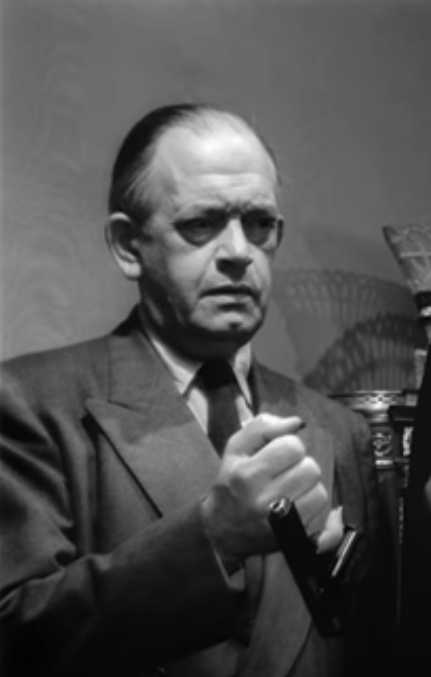At the climax of Sunset Boulevard (1950), everyone is crowding around Norma Desmond after she has gunned down Joe Gillis. A police captain, played by Howard Negley, interrogates Norma with another officer. During the beginning of the interrogation, it starts rather standard. The captain is insisting on asking why Norma could have killed Joe, giving himself a sense of ‘social everydayness’, giving him a sense of believable authority. (Will P79) He is formal, yet leaves room for Norma to give herself an alibi. Asking if she was the victim of theft or had taken part in a quarrel, as opposed to the accompanying officer who suggests Norma killed Joe out of hatred. This suggests that he holds either a respect or pity for Norma, wanting to give an excuse for her to latch onto. Unfortunately, nothing he says grabs Norma’s attention, suggesting that Norma is either so out of her mind that the world has fallen away around her, or that she simply doesn’t care about the consequences of her actions. It is suggested to be the former, when an officer comes to inform the captain that news has shown up with cameras. While the captain dismisses the cameras, not wanting them to bother Norma, this is what breaks Norma from her trance, making her believe she is taking part in a film. There is confusion on the captain at Norma’s behaviour at first, but this turns into a begrudging understanding, knowing that manipulating Norma may be the only way to get her out of the house and to a police car. The captain conveys a subtle ‘transitory attitude’ to his officers to help Norma willingly, albeit under false pretenses, to go downstairs, as to not tip Norma off that she’s being arrested instead of being in a fantasy, able to convey this in what she might perceive as simply a ‘insignificant gesture’. (Christian P111) As Norma makes her way down the steps, the last scene of the police captain is him standing at the top of the steps, sharing the same look with the rest of the crowd. It is a look of pity towards the madness that has taken over Norma Desmond. He symbolized the last person to vocally try to reach Norma as a person of sound mind, as well as being forced with the rest of the crowd to indulge in the last fantasy of Norma.
Works Cited
Wilder, Billy, director. Sunset Boulevard. Paramount Pictures, 1950.
Will Straw, Introduction, Screen, Volume 52, Issue 1, Spring 2011, Pages 78–81, https://doi.org/10.1093/screen/hjq057
Christian Keathley, Pass the salt … and other bits of business, Screen, Volume 52, Issue 1, Spring 2011, Pages 105–113, https://doi.org/10.1093/screen/hjq065

Provide Feedback